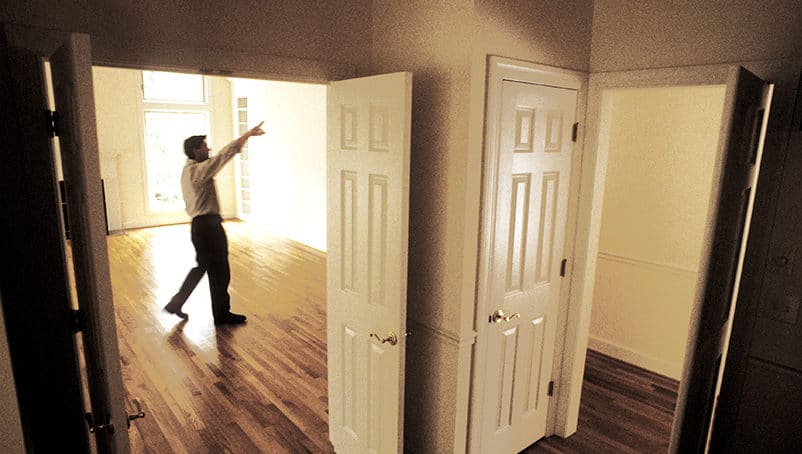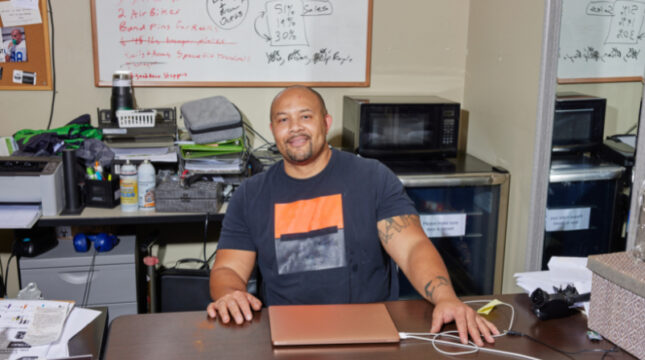Real estate agents know a critical part of the home buying and selling process is the open house. For decades, open houses have followed a pretty standard formula that's been proven tried and true again and again.
However, times change, and technology is a big driver of that. Today, there are plenty of reasons why virtual open houses are becoming an attractive alternative. More real estate agents are using a virtual open house as a new way to attract more clients and close deals.
Here's what you need to know about virtual open houses and why this is a growing trend for real estate agents.
What is a virtual open house?
A virtual open house is a way to show a home to potential buyers when they can't physically enter a property. There are plenty of reasons for that.
For example, sometimes, potential buyers live far away and they are moving across the country. There also might be health concerns. In times where homeowners prefer social distancing — or if there are COVID-19 shelter-in-place orders — virtual tours can take the place of in-person tours.
Improvements in technology have helped fuel the virtual open house tour trend, as well. Real estate agents can now use high-definition video that helps buyers can feel like they are walking through a home.
How to do a virtual open house tour
The primary goal for most open house tours is to attracted interested buyers and close the sale. Virtual tours can do the same. The key is getting it right with your approach and the technology you use.
Here are the steps you should take to ensure you have all the pieces in place to host a great virtual open house for your client.
1. Pick your platform
Virtual open house tours have become increasingly sophisticated over the years. There are pros and cons with each of the two most common options:
Recorded video virtual open house
Depending on your budget, you hire a videographer to produce a cinematic video for your virtual tour or you can take the DIY approach and use simple cell phone video footage.
With this approach, you'll be able to control what you share in the video, and you can really make it shine by highlighting the most appealing selling points. However, your clients won't get quite the immersive real-time and interactive experience of live virtual open house.
Live virtual open house
Many real estate agents host real-time virtual open houses using their cell phone with video conferencing platforms or social media to showcase the home and also answer questions.
Clients enjoy this method because it offers a more personalized experience, and they can ask questions based on what they see on their screen. They can also ask agents to go back to a particular room or zoom in on something. This creates a more interactive experience for your clients vs. a prerecorded virtual tour.
On the other side, it is also a bit more unpredictable. It can be hard to get used to being on camera, technical problems could create issues and you might have to field some questions you might not have considered.
2. Advertise your open house
Once you've decided on your approach, you want to let your clients know.
If you're hosting a live event for multiple people, set your date one or two weeks in advance so you have time to promote it and give your clients can RSVP.
Think about how you are going to capture interested leads. One approach is to set up a custom landing page for every open house you do. That way, when you share your news and direct interested people to that landing page via email, your website and social media.
Most real estate agents use Instagram, so if you're using a static video, try posting a little teaser snippet that shows the date the virtual open house goes live. For live events, shoot a mini video that shares the virtual open houses on your schedule.
Also, update your website, including the house listing with the virtual open house information and send out an email to your interested clients.
Learn more about marketing techniques for real estate agents.
3. Do your homework
Prepare for your virtual open house just as you would with a traditional in-person open house.
Start by having your notes ready. A little spontaneity is great, but you don't want to go completely off the cuff. Know your key points, map out the route you want to take and highlight what features you want to point out in each room.
A lot of real estate agents do a practice run first to work out the kinks and get the timing right. If you take that approach, make sure practice close to the day of the virtual open house so it is still fresh in your memory.
Additionally, go through the house and make sure everything looks good, get your lighting set up and test your sound so you'll know exactly how your virtual tour will look.
Finally, don't forget to test your lead capture system. Go through the process and test out all of your promotional links and sign-up forms to ensure everyone is getting the right information and you are getting leads into your system.
4. Focus on the day of your virtual open house
Once the day of the virtual open house arrives, if you've done all of your prep work, you can relax knowing you're in great shape.
Here's what you should do:
- Get a good night's sleep before so you're feeling fresh and ready to go.
- Arrive at the property early, so you have time to set up.
- Review your notes.
- Do one final walkthrough so you can make any last-minute adjustments and preparation.
- Remember to smile and introduce yourself, and include the home's address at the start of your video.
Finally, be yourself! It can feel daunting being on camera, but all you need to do is think about it as if you're having a conversation with your clients.
Once it's time to start your open house, let your confidence and expertise guide you.
As you get to the end, leave time for questions. This time is a really critical part of the home tour. It's here where you can make a personal connection with a potential homebuyer and use your excitement about the home to get them engaged.
The more relaxed you feel, the better your camera persona will shine through.
5. A few more tips
As you build up more experience with virtual tours, you'll start to realize there are a few key tips and tricks industry experts who are really familiar with these tours know.
These are a few suggestions:
- Consider getting an open house buddy, someone who can hold your camera and help you with tech setup, and you can do the same for them.
- Don't forget to highlight the outside of the house too. Curb appeal matters, and so do backyards.
- Details matter in open houses, so highlight finishes, closet sizes and garage space, to name a few.
- Plan keeping the live virtual open house to 10-20 minutes. Depending on the size of the house, you don't want to rush through it or have it drag on. Recorded virtual open houses can be a bit shorter.
- Anticipate what questions your clients will ask and plan ahead with answers, especially if you're going live.
- You can always use snippets from your open house videos across social media and on your website for extra promotion.
Remember, your goal with any open house is to turn curious people into interested homebuyers.
Establish yourself as an expert for both the home and the local area, so viewers come away with a good feel for the home and the community. A virtual open house is a great chance to get a captive audience excited to work with you.
6. After the open house
Once your virtual open house is over, and you've cleaned up and put away your gear, your work isn't done. Perhaps the most important part is to focus on the next steps, including how to turn your open house into sales.
Here are some approaches you can take:
- Make sure you reach out to everyone who signed up for the open house and left any questions or comments right away and ask them if they'd like to set up an appointment with you for more viewings. Strike while the iron is hot.
- Have a package of key information ready to share via email and text that includes all of the home specs, a link to watch the open house again, high-quality images.
- Don't hesitate to follow up. Most deals aren't closed on the first interaction. You'll stand out from the crowd by being active and staying in touch. Even if this home isn't perfect for this potential buyer, chances are you have other options that could be a good fit.
- Continue promoting the property across your social media channels. Post snippets of your video on Instagram and highlight it in Facebook ads targeting some of the attendees and others like them. You never know when this home could catch interest from a potential buyer.
Most real estate agents end up seeing success from open houses, and there's no reason why you can't close the deal with virtual open houses too. The key is to make sure you're connecting with attendees and doing the legwork once the open house is over.
7. Stay protected
You might think you have nothing to worry about when it comes to a virtual open house. After all, no clients are actually in the home with you, so there's no risk of them having an accident and you being liable.
You still want to make sure you're protected, not only in the event of a trip or a slip, but also if you accidentally damage something inside the home during the tour. The same is true if you make a mistake on your tour. If you accidentally provide incorrect information or don't disclose important facts about the property, you could potentially face legal action.
Real estate agent insurance covers you from common accidents and errors and other risks so you're protected.
With Next Insurance, you'll get affordable coverage that's tailored to your needs, and you can get a quote online in just a few minutes.





